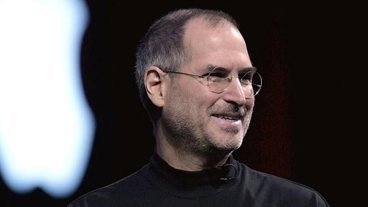Microsoft to pitch Windows 7 via home parties
The new campaign encourages participants to print out Windows 7 advertising banners for their home along with "host notes" outlining how to talk about Windows 7 in glowing terms. There's even a question and answer pamphlet, of which the official launch party web site recommends, "download and print this fun activity to keep the party going!"
With the new security features in Windows 7, it's unlikely the parties will get too carried away. Interestingly, the quiz pamphlet has nothing to do with Windows 7; it's all trivia about Microsoft. One question asks, "Most of Microsoft employees are 29 years of age or younger…. FALSE. 16.8% are 29 or under, 45.0% are 30-39, and 38.2% are 40 and over."
For users still unsure about how to host their friends over for an ad pitch, Microsoft has developed a series of videos that portray a wide demographic of people all demonstrating how to excitedly talk about Microsoft's new software features.
In one spot, four model party hosts explain what users need to do to prepare to host a successful party "with Windows 7 as an honored guest." First, they recommend that users need to install Windows 7 and play with it before hosting their party, calling customer service for support if necessary.
After that, launch party hosts can pick from a variety of fun, Windows 7 related activities created for their home launch event by Microsoft. Each activity has a video demonstration to follow in order to ensure a successful party.
Windows 7 Party... Winner
Microsoft sponsored a contest to sign up a "very limited" number of official launch party hosts, each of whom will receive a copy of Windows 7 Ultimate signed by Bill Gates, along with an undisclosed "Windows 7 Party Pack."
This week, the company announced a list of "finalists" for potential parties. "Receiving the finalist email doesn't mean you've been accepted to host just yet. You will need to be among the first to respond via a link within your email to be confirmed as a host," wrote Microsoft's Brandon LeBlanc in a blog posting on the party organizer site. "This extra step is needed due to the amazing response we've had from people interested in hosting a local Launch Party."
Despite the limited number of official party organizers that Microsoft will ultimately award with free software, LeBlanc assured everyone else, "you can still hold a Windows 7 gathering of your own."
Party on a budget
This spring, Microsoft launched a similar home party effort to sell its Xbox 360 gaming console to women. It awarded about a thousand women across the country a $150 "Xbox Party Pack" that included "microwaveable popcorn, the Xbox trivia game 'Scene It? Box Office Smash,' an Xbox universal media remote control, a three-month subscription to Xbox Live, and 1,600 Xbox Live points (used for game, movie and TV show purchases)," according to a report picked up by Silicon Alley insider.
The low budget party campaigns are a marked departure from the glitzy launch of Windows Vista, which spent millions on advertising but failed to achieve the desired result. The company has since spent $300 million on campaigns that ranged from the Mojave Experiment, which portrayed the problems of Windows Vista as being a big misunderstanding, to a short-lived set of ads that portrayed Bill Gates alongside Jerry Seinfeld, a series of spots reacting to Apple's Get a Mac ads, and most recently ads that present PC buyers explaining that they're not cool enough for an expensive Apple computer.
Microsoft has also ventured into criticism for low budget ads used in promoting its Songsmith title, and a commercial for Internet Explorer 8 that was considered so tasteless and offensive the company had it pulled.
 Prince McLean
Prince McLean










 William Gallagher
William Gallagher

 Wesley Hilliard
Wesley Hilliard
 Andrew Orr
Andrew Orr



 Amber Neely
Amber Neely







